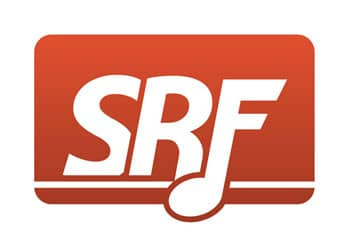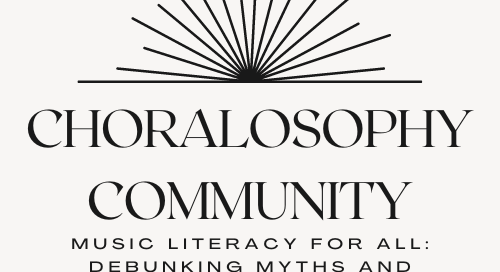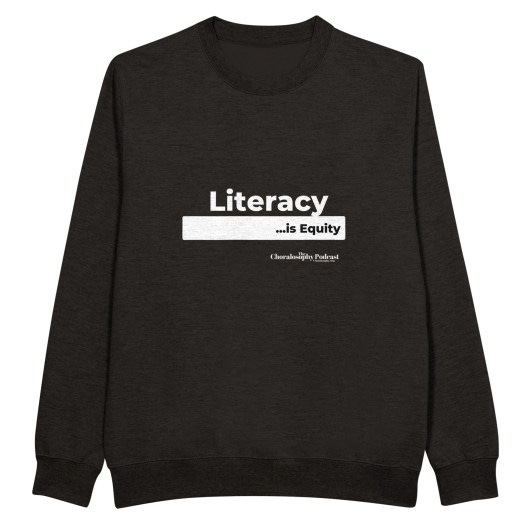Music Literacy for All: Debunking Myths and Embracing Diversity
Odell's presentation was discussed in a recent Choral Journal article, but not named. This is his side of the story.
“I was alarmed to see the February 2024 issue of Choral Journal online, which featured an article titled "A Skills-First Approach to the All-State Choir Selection Process." The title grabbed my attention, so I began reading the article. After reading the first paragraph, I quickly identified the author before I jumped to conclusions. After discovering who the author was, I knew the article was about my presentation and my philosophy of music education.”
In April of 2023, I was fortunate to present “An Unconventional Approach to the Urban Chorus Classroom” at the NAfME Eastern Division Conference, which was held in Rochester, New York. The objective of my presentation is that participants will be able to recognize their own challenges in the urban choral setting and combat them by implementing unconventional or modified strategies to foster music literacy growth and success in their programs.
My presentation speaks on today’s myths and barriers in urban education related to literacy in music education. I wholeheartedly believe in the mantra that is presented on Choralosophy. Namely, that “literacy is equity.” I highlight issues new choral directors may experience starting in the urban chorus classroom.
Notably, I offer suggestions and pedagogical tips to bring success to their programs. The goal is to highlight music literacy “as a whole” and encourage teachers to give all students access to music literacy instruction. The unconventional part of the presentation speaks about the various routes to engage students in the classical style of choral music if they are unfamiliar with it. It speaks on unconventionality as a jumpstart to the main goal, music literacy. In this manner, we begin to debunk myths and embrace diversity for all learners.

While presenting on this topic, several questions were raised during my presentation, and I answered them as they came in instead of waiting until the end of my session. The main reason I decided to take questions throughout my presentation was due to the high level of engagement and passion from teachers from the start. Teachers were anxious and wanted an understanding of every step within the process in which I have successfully gotten students in the urban setting to learn and grow as musically literate musicians. I took questions as my objective for the presentation was being fulfilled through the participants’ inquisitiveness.
One particular educator raised several questions about my presentation. This person was concerned that my presentation was too focused on the reading of musical notation and believed teaching music literacy was a white-washed concept. I responded to each question asked, but I did pose a few questions for him. A few questions I asked him:
1. If you can read music, why wouldn’t you want your students to learn to read music?
2. If you were accepted into a music school, you were taught how to read music and navigate a score, so why shouldn’t we teach it?
3. Should we stop teaching minority students how to read in elementary school? Is literacy in the general education curriculum fine?
4. Do you feel the issue with getting all students to read music based on resources, or is it a teacher (pedagogy) problem?
5. Does the all-state audition rubric in your state only have sight reading as a criterion? How many points is it worth? I have never seen a state rubric anywhere that requires a perfect sight-reading score for students to earn a spot in the all-state choir. Please direct me to this rubric.

I alluded to the idea that it is not equitable for minority learners not to learn how to read music. The clinician eventually ran out of questions and agreed to talk after my session. I connected with this person, and we agreed to disagree, and I was confident in a clear path to a resolution.
At any rate, I was alarmed to see the February 2024 issue of Choral Journal online, which featured an article titled “A Skills-First Approach to the All-State Choir Selection Process,” by Dr. Marshaun Hymon. (Discussed on Choralosophy episode 184.) The title grabbed my attention, so I began reading the article. After reading the first paragraph, I quickly identified the author before I jumped to conclusions. After discovering who the author was, I knew the article was about my presentation and my philosophy of music education.

Notably, “A Skills-First Approach to the All-State Choir Selection Process” is a passable title with fair-to-middle supporting details. The article describes a skills-first approach to all-state choir selection as being broader than sight-reading only. In the author’s redefining attempt, he explicitly states what is already the standard, in which he brings up expressive singing, feeling the rhythm, internalizing the beat, and producing a quality tone. Are these the criteria on the rubric for all state auditions already? Have you ever seen an all-state rubric with sight reading as the only criterion? If this is the case, I agree with the author and everyone who has advocated for removing sight-reading. This makes the supporting points for removing sight-reading frivolous and futile. In addition, I have seen students make it into the all-state choir with less-than-perfect sight-reading scores, so this explains why the skills-first approach is already beyond just sight-reading. If a kid can flawlessly sight-read but bombs the solo audition piece, they will not make it into the all-state choir. Is sight-reading the only reason certain students are not making it into all-state choirs? People arguing for the removal of sight-reading are making a case that it’s a Eurocentric thing, and I want a better understanding as we should try to find a clear path to resolution. My biggest question would be, “Why do we bring up Eurocentrism when it comes to reading music only? Do we consider common core curriculum literacy Eurocentric? I’ll let you answer the question; however, we strongly encourage our children and students to read well. If they can’t read well, we see the reading coaches and reading interventionists pulling kids out of class to teach them how to read. As parents, we even read stories to them before bed, we may participate in summer reading challenges at the library, and we reinforce reading after school by documenting reading logs, etc.
A popular rationalization brought up by some educators is the lack of resources and how students cannot learn and develop literacy skills. I repeat it often and remind everyone that it is a pedagogy issue, not a resource issue. I remember a former teacher in Illinois who talked about teaching students to read music from his hand as his five fingers represented the five lines, and spaces between the fingers represented the four spaces. I often heard this process quoted by a retired choral director in Norfolk, Virginia. In other words, resources were never a hindrance for these teachers, and they ensured their students learned how to read music. I did not share that to say it is an ideal way to teach but to share that where there is a will (good pedagogy, too), there is a way.
The last point I want to bring forth from the article is learning music before an audition. The author expresses that not all districts can hire vocal teachers or accompanists to help students learn the music before arriving for the all-state audition because of poor funding. The point made here was the most significant substandard point I read throughout the article. Teachers should help students learn the music before all-state; once students’ reading skills develop, they can teach themselves the music, and vocal tracks can be created by “someone” or a music program.

The entire article is about Eurocentrism, poor funding, no resources, and sight-reading, but never mentions anything about quality teaching, professional development, or the need for competent teachers with solid choral/vocal pedagogy. Many teachers struggle to teach the skill, which is the bottom line. When we begin here, we will talk less about sight-reading and more about professional development for teachers who do not have the skills to chunk, scaffold, and create a space where critical thinkers consistently engage in higher-order thinking skills and are in the work zone of proximal development.
“What are music educators bickering about? What are we really saying? Don’t we all agree?” I will not dare attempt to be a spokesperson for all. Still, I am finding more and more that several music educators agree, and the various perspectives on music literacy have caused philosophical bickering. What does music literacy mean? Let us separate the compound word “Music Literacy” and define it. Oxford Dictionary defines music as “the art or science of combining vocal or instrumental sounds to produce beauty of form, harmony, melody, rhythm, expressive content, etc. “Literacy is the quality, condition, or state of being literate; the ability to read and write.” I separated “Music Literacy” as we have dichotomized the two and inadvertently created a national music teacher contest/poll. Interestingly, once we filter through all the perspectives, we quickly realize that we are all on the same page, which ultimately means we are all on the same team. Nobody said we should only read music, and nobody said we should only learn by rote. The issue is creating unspoken polls, and folks are subconsciously voting for one or the other. We must be mindful that both the aural and visual components of music education work concurrently. The common goal is to make the music-making experience a joy for our students and create lifelong patrons of the arts.
My music career has been rewarding, and the most rewarding part has been seeing students grow as musicians, singers, and people. I find the most joy in seeing students mature over their time in my program. My passion has been urban education, primarily in settings with families with low socio-economic status. I have discovered that the most talented, resilient learners are in this setting. We must teach literacy to students in this setting. Nevertheless, as we all may agree to disagree, we all agree because learning music by rote and reading music go hand in hand. It is rote before the note, ear before the eye, and sound before the sound, so everyone should start without notation. The notation part starts after and sometimes in conjunction with the aural training. If you already focus more on the aural training, teaching them to read will not be a problem. The inverse cannot happen because students who do not have good aural skills cannot sight-read well. I would love to see more college professors speak up on this issue!








terrific article and beautifully expressed. So some pithy observations after 50 plus years as a music educator:
1. Too many music educators are not trained to teach literacy. Far too many!
2. Time to teach the Guido hand?
3. The ear informs the eye before the eye informs the inner hearing. A child starts learning to read by being read to. They follow the word symbols with no understanding until the sounds of the phonemes connect with the eye. In the current American culture, our children do not have melodies in their experience to reference. Many cultures, notably Africa, the children know hundreds of tunes and rhythms by age 5. In America, a few dozen.
4. Knowing the folk music or the melodies of a culture is the most efficient way of teaching language skills. This preparatory to reading the words.
And 5. I had a chance meeting in the 80s with Joe Williams, the great Jazz Singer. We were in the waiting area for a flight to LAX in the Las Vegas airport. I saw him sit down and went over to him to tell him how much I admired his singing. He asked what I did for a living and I told him I was a communist college music educator. He remarked about how special it was that I taught music and he wished he could read music. He learned everything by ear and had had an extensive experience in his youth of hearing up close and personal some of the greatest jazz performers of his day. He was on the way to the Tonight Show to perform for Johnny Carson. He was remarkable that night. Nuanced, sensitive, gorgeous tone, and thoroughly musical. Literate? In his way, yes! I went back to the college and sang more tunes with my sight-reading class before showing them the score. Our reading abilities soared.
Again, thank you Odell! I’m now a follower.
Thank you for this Odell! Your response is phenomenal and thorough. I love your approach to teaching and cultivating music literacy in your classroom. Thank you!